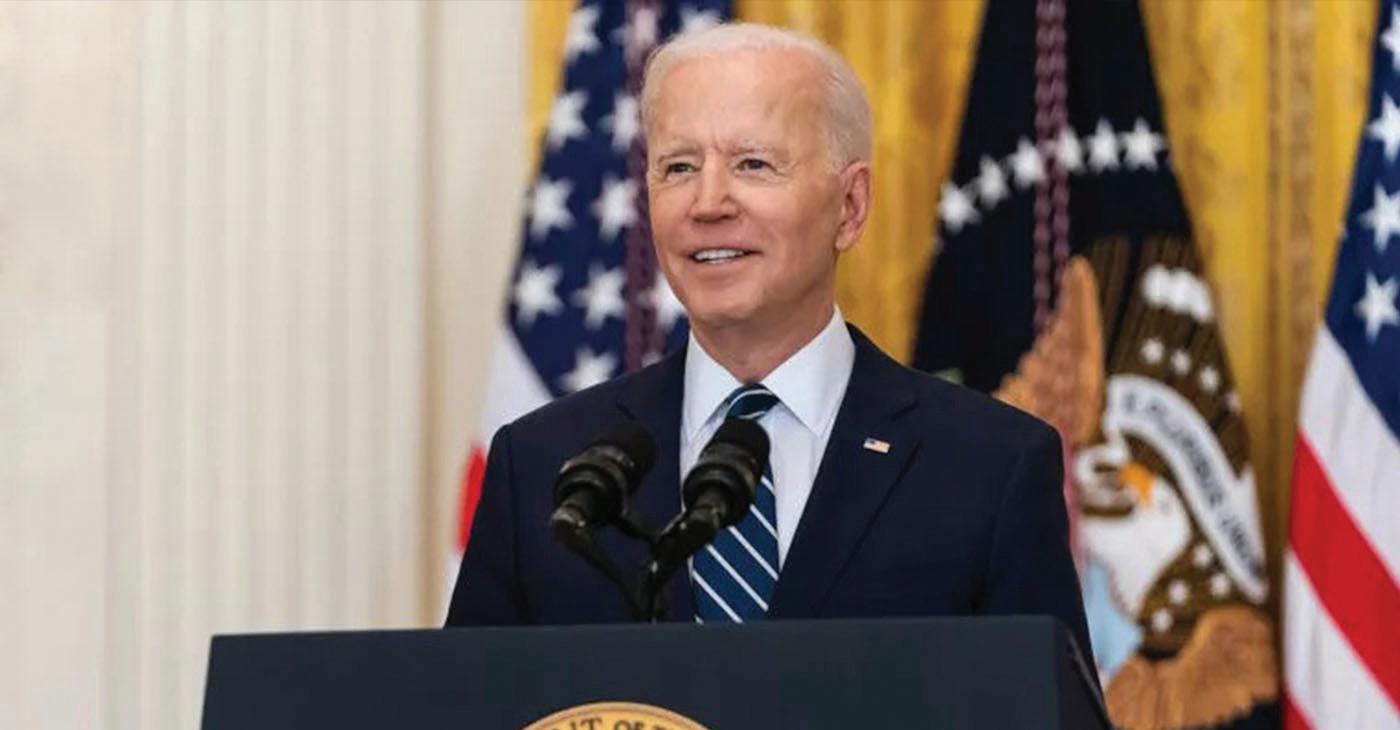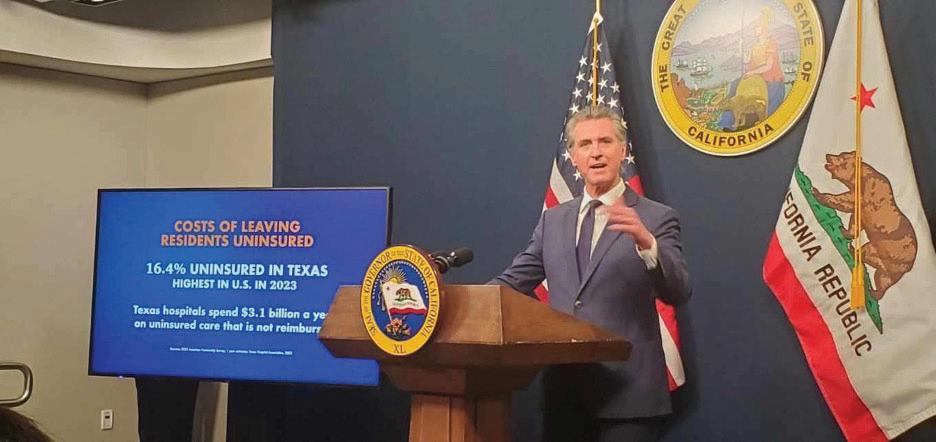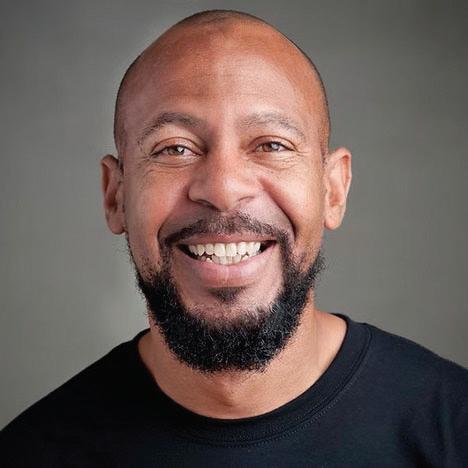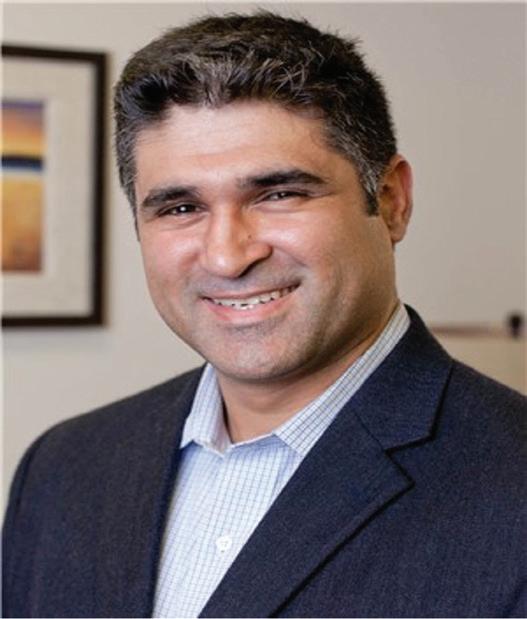More Than 106,000 Black Women Lost Jobs Last Month
By Stacy M. Brown
Photo by Edmond Dantès on Pexels.com
Black women experienced the steepest job loss of any demographic group in April, shedding 106,000 jobs, according to newly released data from the U.S. Bureau of Labor Statistics.
The April report shows a significant setback for Black women in the labor market, even as the U.S. economy added 177,000 jobs and the national unemployment rate held steady at 4.2%.
The number of employed Black women dropped from 10.325 million in March to 10.219 million in April. Their unemployment rate jumped from 5.1% to 6.1%, the largest month-to-month increase among all racial and gender groups.
Among other findings, the labor force participation rate for Black women edged to 61.2%, indicating a loss in employment and a possible decline in overall workforce engagement. The unemployment rate for white women remained unchanged at 3.3%. Hispanic women’s unemployment also held at 4.6%. Women in other groups generally do not face the dual barriers of racial and gender discrimination that Black women contend with, a factor in the jobless rate gap.
The overall Black unemployment rate rose to 6.3% in April, up from 6.2% in March, marking the third straight monthly increase and the highest rate since January. In contrast, Black men saw a gain in employment, dropping their jobless rate from 6.1% to 5.6%.
Asian Americans had the lowest unemployment rate in April at 3.0%, while the rate for Hispanic Americans was 5.2% and 3.8% for white Americans.
HBCU Money reported that
the number of Black women employed is now at a fivemonth low, while the number of unemployed Black women is at a five-month high.
Economist William Michael Cunningham, owner of Creative Investment Research, told Black Enterprise that the number of unemployed Black Americans increased by 29,000 in April, reaching nearly 1.4 million. At the same time, the total Black labor force declined by 7,000.
“The unusual nature of this increase in Black women’s unemployment is a testament to and a direct result of the antiDEI and anti-Black focus of the new administration’s policies,” Cunningham said. “This is demonstrably damaging to the Black community, something we have not seen before.”
Cunningham noted that many Black women are searching for jobs but not finding them. He said eliminating diversity, equity, and inclusion roles and cuts in federal government jobs are key contributors. The BLS reported that federal government employment dropped by 9,000 in April and is down 26,000 since January.
“For Black women, the numbers show that those seeking work are not finding jobs,” Cunningham said. “The jobs that have traditionally been a path to stability are disappearing.”
Nationwide, job growth continued in health care, transportation and warehousing, financial activities, and social assistance. Average hourly earnings increased by six cents to $36.06.
The Employment Situation for May is scheduled for release on Friday, June 6.
Social Organization for Black Women Celebrates 90th Conclave
Members will assemble in Boston from May 22-25, 2025, for ‘The Boston Tea Party’
Nationwide -- The Girl Friends®, Incorporated is one of the oldest and most highly respected social organizations of African American women in the United States. Founded in 1927 in New York during the Harlem Renaissance, Girl Friends serve their communities in many capacities—as authors, professors, doctors, lawyers, business owners, U.S. Congress members, wives, and mothers. Corporate supporters for The Girl Friends®, Incorporated Conclave at the Hilton Boston Park Plaza include Signature Partner Meet Boston (Greater Boston Convention & Visitors Bureau) and Lead Partners Morgan Stanley, AARP, and Encore Boston Harbor, a Wynn Resort. Additional Supporting Partners include: The City of Boston, Eastern Bank, Hearst
Thursday, May 22, 2025
Social Organization for Black Women Celebrates 90th Conclave...continued
Boston250, our city’s celebration of the American Revolution”.
Providing a boost to the local economy, Girl Friends will visit the African Meeting House on Beacon Hill, visit The Embrace memorial on Boston Common, tour the Boston Public Garden, walk the galleries at the Museum of Fine Arts Boston, cruise Boston Harbor, enjoy the theater and dine at dozens of local restaurants, including several black-owned restaurants. Conclave Chair Dr. Cindy Carter noted, “The first Conclave was held in 1933 in New York City with 28 members in attendance; this year, the Boston Chapter will welcome well over a thousand to our city for our 90th Conclave.”
Although the original concept was social, The Girl Friends®, Incorporated has expanded its
purpose to include charitable and cultural activities. Nationally, approximately one quarter million in contributions have been made to major organizations like NAACP, the United Negro College Fund, the Children’s Defense Fund, the Smithsonian National Museum of African American History and Culture, The Flint Water Crisis and The Girl Friends Fund Scholarship Program. In 1989, the Girl Friends Fund was founded as a separate 501 (c) (3) organization to provide financial assistance to students nationwide. Locally, Girl Friends chapters have supported a broad spectrum of causes from educational projects, as well as the arts, health and wellness initiatives, and community assistance programs.
Job Fair & Expungement Clinic May 28 10am-2pm
San Bernardino County is offering a valuable opportunity for job seekers and individuals seeking to clear their records with an upcoming Job Fair and Expungement Clinic. The event is scheduled for Tuesday, May 28th, from 10 am to 2 pm and will be held at Ontario International Airport, Terminal 1, located at 1940 Moore Way, Ontario, CA.
This initiative aims to connect job seekers with a diverse range of employers actively hiring in the region. Attendees will have the chance to meet representatives from various organizations, including:
Oscar Castaneda Insurance (Farmers)
Hope Through Housing Foundation
life. The event will provide access to valuable Resources, including information on Preschool Services, Transitional Assistance, and Veterans Affairs. This holistic approach ensures that attendees have access to support systems that can aid them in their job search and personal well-being.
For those interested in attending, the location is easily accessible at Ontario International Airport, Terminal 1. For any inquiries, the phone number provided is (800) 451JOBS (5627).
Television and The Partnership, Inc.
“Our Girl Friends are looking forward to convening in Boston to conduct our national business, celebrate our civic engagement and renew our bonds of friendship” said Beth Espy, 39th National President of The Girl Friends®, Inc. “In these changing times, we wholeheartedly thank our sponsors for their support.”
Boston became the fourth chapter of The Girl Friends®, Inc. in January of 1931 and last hosted a Conclave in 1976. “We are proud to be the destination for this annual gathering once again, “said Karen Holmes Ward, National Vice President and Boston Chapter President. “Our theme, ‘The Boston Tea Party’, aligns perfectly with
What to know about a federal proposal to help families pay for
By Cory Turner/npr
A first-of-its-kind effort to leverage federal tax dollars to help families pay for private school tuition anywhere in the U.S. is one step closer to becoming a reality.
Republicans on the House Ways and Means Committee voted this week to include a federal school voucher program, worth $20 billion over four years, in the broader reconciliation bill that would also extend President Trump's 2017 tax cuts.
The evidence on school vouchers that'll please nobody
The Indicator from Planet Money
The evidence on school vouchers that'll please nobody The voucher vote was hailed
private school
by Republicans and school choice advocates.
"Expanding President Trump's tax cuts is about preserving the American Dream. Giving parents the ability to choose the best education for their child makes the dream possible," Sen. Bill Cassidy, R-La., said in a statement. Cassidy helped lead the voucher effort in the Senate.
"We are one step closer to bringing school choice to every state in America," Tommy Schultz, CEO of the American Federation for Children, said in a statement. "Ultimately, every child, especially from lowerincome families, should have access to the school of their choice, and this legislation is the only way to make that happen."
Affordable Childcare Remains a Barrier: Solutions in New Report
By BlackPress of America
Two mixed race children of elementary school age attend class from home. School has been cancelled due to the COVID-19 Pandemic.
While America’s childcare supply grew nationally, the price of that care continues to rise—placing affordable, highquality care out of reach for many families. A new report released by Child Care Aware® of America (CCAoA), Child Care in America: 2024 Price & Supply, shows that despite promising signs of increased supply, affordability remains a major barrier — and underscores the need for increased sustained federal and state investment.
From 2023 to 2024, the number of childcare centers increased by 1.6% (to 92,613) and the supply of licensed family childcare (FCC) homes increased by 4.8% (to 98,807). The national growth in FCC homes’ supply is driven largely by four states (CA, KS, MA, VA) and is especially notable as it reverses a year-long downward trend.
At the same time, the national average price for childcare rose by 29% from 2020 to 2024, outpacing inflation and exceeding other major family household expenses like rent or mortgage payments in many states. Childcare is now so expensive that it consumes 10% of a married couple with children’s median household income and a staggering 35% for a single parent. In most states, families pay more for childcare
than rent, mortgage payments, or in-state university tuition.
“Childcare supply is increasing, and that is a win— but it’s not enough,” said Susan Gale Perry, Chief Executive Officer of CCAoA. “Recent federal and state pandemic-era investments have stabilized and grown supply in some places, but a significant supply gap still exists — especially in rural communities and for infants and toddlers. We also still haven’t put a dent in affordability for working families. That’s why we urgently need increased funding and new solutions.”
CCAoA’s Childcare in America: 2024 Price & Supply report also found that:
The average price of childcare increased by 29% from 2020 to 2024, outpacing the national inflation rate of 22%.
In 45 states plus Washington, DC, the average annual price of center-based childcare for two children exceeded mortgage payments, in some states by up to 78%.
In 49 states plus Washington, DC, the price of center-based childcare for two children exceeded median rent payments ranging from 19% to over 100%.
In 41 states plus Washington, DC, infant care in a center cost more than in-state university tuition.
CCAoA urges policymakers to increase childcare funding at both state and federal levels to maintain the momentum of growing supply, address rising prices, and expand access to childcare for families. Federal funding increases have fallen short of the need and our research shows that total state investments in child care or preschool vary
San Bernardino County Probation
Aspire Lounge Ontario Airport
Rebel Convenience Stores
Los Angeles Police Dept.
Pacific Lodging Supply
Hawkeye Properties
KeHe
SB County HR CAM Industrial
SB County Sheriff
York Employment
This list showcases opportunities across different sectors, from insurance and housing to law enforcement and hospitality, offering a wide array of potential career paths for attendees.
In addition to the job fair, the event will also feature Record Clearing Services. Representatives from Law Offices of the Public Defender will be on-site to assist individuals with understanding and navigating the expungement process. This is a significant opportunity for those seeking to clear eligible criminal records, which can be a crucial step in improving employment prospects and overall quality of
Attendees are also encouraged to register for the event online by scanning the QR code provided in the event flyer or visiting https://www.google. com/search?q=WVHE0528. eventbrite.com. Another QR code is available for a map to the location.
This Job Fair and Expungement Clinic represents a significant effort by San Bernardino County to support its residents in achieving employment and overcoming barriers related to past records. It’s a one-stop opportunity for individuals looking to take the next step in their career journey and build a brighter future.
Another QR code is available for a map to the location.
This Job Fair and Expungement Clinic represents a significant effort by San Bernardino County to support its residents in achieving employment and overcoming barriers related to past records. It’s a one-stop opportunity for individuals looking to take the next step in their career journey and build a brighter future.
Trump’s cuts to teacher training leave rural school districts, aspiring educators in the lurch
By Chris Berdik The Hechinger Report
Jaci Grado has wanted to be an educator since she was in kindergarten. Her love of teaching solidified in high school when she worked at an afterschool program in her hometown of Schuyler, Nebraska. The biggest employer in Schuyler is the Cargill beef processing plant, which relies on immigrant labor. More than 70 percent of the town's 6,500 residents are Hispanic, including Grado, whose parents immigrated from Mexico. The second-biggest employer is the school system, which struggles to find and keep qualified teachers, much like rural communities nationwide.
Grado is now wrapping up her sophomore year in the University of Nebraska-Lincoln's teachertraining program. The first person in her family to go to college, she has been able to attend thanks to a scholarship program co-directed by UNL and Kansas State University to support aspiring teachers from rural places like Schuyler who could fill vacancies in their hometown schools.
Read more at: https://www. sanluisobispo.com/news/local/ education/article306443716. html#storylink=cpy
Black History News
Thursday, May 22, 2025
May Revise: Newsom’s 2025 Budget Preserves Services Critical to Black Communities
Joe W. Bowers Jr. | California Black Media
On May 14, Gov. Gavin
Newsom presented his revised 2025–26 state budget, a $321.9 billion proposal designed to close a projected $11.9 billion deficit while maintaining core investments in education, health care, and behavioral health. During a 90-minute presentation, Newsom started by touting California’s status as the world’s fourth-largest economy before laying out fiscal adjustments needed to guide the state through what he described as an “uncertain and volatile” climate.
“We’re not just the fourth largest economy in the world -$4.1 trillion in annual output -- we lead the nation in manufacturing, innovation, agriculture, and trade,” Newsom said. He blamed much of the current economic downturn on federal policy and called the fiscal volatility the state is experiencing “the Trump Slump.”
The May Revise uses a combination of $5 billion in spending cuts, $5.3 billion in borrowing and fund transfers, and $1.7 billion in fund shifts to help balance the budget. No new state taxes are proposed, but reserves are projected to remain at $15.7 billion.
Newsom’s biggest cuts land on Medi-Cal, the state’s health coverage program that serves over 14 million low-income Californians -- including 38% of Black residents. The Governor proposes freezing enrollment for undocumented adults starting in 2026, imposing a $100 monthly premium, and eliminating access to long-term care and dental services for undocumented people. Additional cuts would bring back asset tests for seniors and reduce hours for caregivers
By Stacy M. Brown
in the In-Home Supportive Services (IHSS) program -- a workforce predominantly staffed by Black women.
Despite the cuts, the state will continue investing in behavioral health services. The budget maintains funding for Proposition 1, which expands mental health and substance use treatment, including housing. It also supports the launch of BHCONNECT, a multiyear effort to improve behavioral health care for high-need Medi-Cal enrollees, including those at risk of homelessness or involved in the justice system.
“We’ve reached a point where Medi-Cal expenditures are outpacing our revenue growth,” said Budget Director Joe Stephenshaw. “This budget tries to bring balance without dismantling core health services.”
The May Revise continues strong support for K–12 education, proposing $25,176 in total per-student funding from all sources. Of that, $18,671 comes from Proposition 98, with a 2.3% cost-of-living adjustment applied to the Local Control Funding Formula (LCFF), which directs more resources to districts serving high numbers of Black students, English learners, and low-income families. The budget also maintains funding for universal transitional kindergarten, free school meals, and extended day and summer programs.
In a notable addition, Newsom proposes new funding to support evidence-based reading instruction, literacy coaches, and teacher training. “In a really tight budget year, prioritizing reading for California kids and investing $200 million is real leadership,” said Marshall Tuck, CEO of
EdVoice.
State Superintendent of Public Instruction Tony Thurmond applauded Newsom, saying, “The Governor’s proposed revision would fund critical programs that we know improve student achievement.”
The University of California and California State University systems will also see budget relief. Initially facing 8% cuts, the systems will now see reductions of just 3%, a move UC President Michael V. Drake said, “demonstrates his strong commitment to California’s students.”
However, the California School Boards Association warned about the long-term impact of Newsom deferring $1.3 billion in Prop. 98 funding. “This is the second consecutive year the budget has contained some form of unconstitutional Prop 98 manipulation,” said CSBA President Dr. Bettye Lusk. The budget holds the line on homelessness funding but includes no new allocations. Newsom expressed frustration with local governments, saying, “I’m very negative about the performance at the local level,” while noting that California’s homelessness rate did not reflect the national 12% surge in unhoused individuals. The state only reported a 0.45% increase in its unsheltered population during 2024.
However, the absence of new investments comes as Black Californians -- who make up just 6.5% of the state’s population but over 30% of its unhoused residents -- remain disproportionately impacted.
While a new state housing and homelessness agency and a future infrastructure bond are in development, new funding from those initiatives are unlikely to reach communities before 2027.
Newsom, in his May Revise presentation, did not address the California Legislative Black Caucus’s (CLBC) “Road to Repair” legislative package, which includes bills introduced by Assemblymembers Lori D. Wilson (D-Suisun City), Isaac Bryan (D-Ladera Heights), Tina McKinnor (D-Inglewood), Mia
Bonta (D-Alameda), Corey Jackson (D-Moreno Valley), Sade Elhawary (D-Los Angeles), LaShae Sharp-Collins (D-La Mesa), and Rhodesia Ransom (D-Stockton) as well as Senators Dr. Akilah Weber Pierson (D-San Diego), Lola Smallwood-Cuevas (D-Ladera Heights) and Laura Richardson (D-Inglewood).
The package includes proposals to establish a state reparations agency, launch a guaranteed income pilot program, and invest in housing, education, and health for descendants of enslaved Black Americans.
While Newsom has previously voiced support for exploring reparations, no line-item funding was included for the CLBC’s proposals. However, the budget does allocate $12 million to support the implementation of reparations-related bills already signed into law. The caucus is expected to continue negotiations through budget trailer bills ahead of the June 15 deadline.
The May Revise comes as the State is under attack from the federal government, including efforts by Congress to cut Medicaid, food assistance, and housing programs. Medi-Cal, which makes up more than 64% of all federal dollars flowing through California’s budget, is particularly threatened. Newsom warns that impending federal cuts could force the state to consider deeper reductions.
Legislative leaders are split on Newsom’s approach. Senate President pro Tem Mike McGuire (D- Healdsburg) praised the plan, saying California is navigating a tough year made worse by “an openly hostile federal administration.”
Legislative Republicans strongly disagree. “Newsom’s finger-pointing on the budget shortfall is the biggest load of crap I’ve ever seen from a politician,” said Assembly Republican Leader James Gallagher (R- Yuba City), blaming the deficit on “reckless spending and failed leadership.”
As budget negotiations move forward, Newsom says his goal is to protect vital services and uphold California’s values.
WNBA Launches Probe
image of
2022-23
Affordable Childcare Remains a Barrier: Solutions in New Report...continued from page 2
widely from state to state, putting children, families, and communities across America on an uneven playing field. Further, targeted investments in childcare supply building and stabilization and childcare workforce recruitment and retention strategies are essential to help sustain an adequate supply of high-quality childcare options nationwide.
Child Care Aware® of America (CCAoA) is the only national organization that supports every part of the childcare system. Together with an on-the-ground
network of people doing the work in states and communities, it helps America become child care strong by providing research that drives effective practice and policy, building strong child care programs and professionals, helping families find and afford quality child care, delivering thought leadership to the military and direct service to its families, and providing a real-world understanding of what works and what doesn’t to spur policymakers into action and help them build solutions.
Op-ed: Cuts to safety programs could cost lives
By Aqeela Sherrills
Cut: Aqeela Sherrills is co-founder and CEO of “Community-based public safety” (CBPS). This week, he shares his thoughts on the real cost in the loss of federal funding. (Courtesy photo)
In recent months, the Department of Justice “cancelled hundreds of grants to community organizations and local governments,” which included funding for programs authorized under the bipartisan Safer Communities Act.
families who lose loved ones. Conversations with partners about how we solve more entrenched problems with less funding.
But we could be having different conversations. We know what works, and these cancelled grants were funding innovative, community-driven approaches to make communities from South Carolina to South Dakota to South Central safer for everyone. We have seen firsthand the limitations of traditional public safety approaches. Communityled and community-centered public safety approaches are evidence-backed, proven strategies embraced by police chiefs and bipartisan leadership at every level of government to end this public health crisis across the country.
celebrating the Louisiana State
Friday, May 26,
The WNBA has launched an investigation into what it called “hateful fan comments” directed at Chicago Sky forward Angel Reese during Saturday’s game against the Indiana Fever—an episode that reignited longsimmering racial tensions surrounding Reese and Fever second-year player Caitlin Clark. The two players, who entered the league together last year after a fiery college rivalry, have become emblematic of a racial divide that continues to shape how fans, media, and the public perceive Black and white women athletes. Reese, who is Black, has often been vilified for her outspoken confidence and physical play. Clark, who is white, has largely been celebrated, even while displaying similar traits on the court. “They both are excellent competitors,” ESPN broadcaster Monica McNutt said. “But if it had been the other way around [Reese shoving Clark], you could imagine how this conversation would go.”
In the third quarter of Indiana’s 93-58 win, tensions boiled over when Clark slapped at the ball after Reese secured an offensive rebound and had a clear path to the basket. Reese fell to the floor and quickly got up to confront Clark before Fever star Aliyah Boston intervened. Officials reviewed the play, upgraded Clark’s foul to a flagrant 1, and issued technical fouls to both
Reese and Boston. As boos rang out from the largely non-AfricanAmerican crowd at Gainbridge Fieldhouse, Reese was targeted more aggressively—particularly during her free throws. The WNBA said it is investigating “allegations of hateful fan comments” directed at her during the game. “The WNBA strongly condemns racism, hate, and discrimination in all forms — they have no place in our league or in society,” the league said in a statement. “We are aware of the allegations and are looking into the matter.” Reese declined to speak to the media after the game and had no comment Sunday through a representative. The confrontation—and the
crowd’s reaction—quickly spilled into online discourse, with some defending Reese while others amplified attacks. Former NFL quarterback Robert Griffin III, who is married to a white woman, drew fire for a post accusing Reese of creating a hostile environment. “Angel Reese said she is the villain, refused to answer questions about Caitlin Clark, and has celebrated flagrant fouls on Caitlin Clark,” the ill-informed Griffin said. “I’m not helping create anything. Angel Reese has fed into this with her actions. She needs to do better.” Former Cowboys wide receiver Dez Bryant fired back at Griffin. “Both girls are good in their own right,” Bryant asserted. “Caitlin Clark is better than Angel Reese, but saying she hates her is wild. You are helping create a negative narrative around Angel Reese.. and I don’t respect it, respectfully. You know this is tied into race.. and the way you’re playing it is wild. We gotta do better.” Chicago Sky CEO and president Adam Fox fully supported Reese and welcomed the WNBA’s investigation. “We will do everything in our power to protect Chicago Sky players,” Fox said. “And we encourage the league to continue taking meaningful steps to create a safe environment for all WNBA players.”
Hundreds of organizations doing life-saving work that makes communities safer and more resilient are dealing with the devastating and reeling impact of these cuts, including ours. But the cost to communities won’t be counted in jobs lost. Sadly, the costs will be counted in the number of lives lost when grassroots community violence intervention (CVI) programs disappear, leaving a void in communities like South Central while simultaneously leaving our law enforcement partners without a critical tool to reduce violence.
The difficult conversations I had to have started with telling 20 team members they no longer had a job. Countless CVI organizations across the country had the same conversation, including the organizations we provided training and technical assistance to under the agreement. These are Americans who have worked tirelessly to help Los Angeles reach its lowest level of violence since 2017 and who helped move Newark off the top 10 most violent cities list. But that is not where the difficult conversations will end. We all will be forced to have difficult conversations when our communities in red and blue states feel the impact of these cuts. Conversations with
Community-based approaches are not simply about reducing gun violence. Those reductions are important outcomes, but the real focus is working with people to build communities that produce safety. These programs achieve that by boosting youth civic engagement, creating economic and educational growth opportunities, mentoring youth and young adults, increasing access to mental health support and advocating for victims and survivors. This proven strategy enhances community safety and well-being because it engages community members, especially youth, in constructive and meaningful ways.
At this moment, which is also National Crime Prevention Month, I am compelled to raise my voice to uplift the dedicated efforts of CVI workers who are creating safer neighborhoods nationwide. These remarkable individuals draw from their life experiences to connect with those living in neighborhoods most affected by violence.
Safety is a shared responsibility that requires a collective commitment from all sectors of society, including federal, state and local governments. We must recognize and appreciate the essential role of national and grassroots CVI programs by showing commitment to long-term investments that make Americans safer for decades to come.
Angel Reese Targeted After Flagrant Foul;
Cropped
Angele Reese at an event
University Tigers women’s basketball team’s
NCAA championship
2023, in the East Room of the White House. (Official White House Photo by Erin Scott)
Legendary Comedian Luenell Hosts Star-Studded Rooftop
Tribute to Iconic Bishop Don Magic Juan
Saturday, June 14 · 8PM
· The Godfrey Hotel Hollywood Get ready for a night of Hollywood magic as powerhouse producer Kevin Rouse of Rouse House Entertainment and First Friday Productions along with The LA Promoters roll out the green carpet for another iconic, can't-miss event! Known for over 25 years of delivering sold-out, A-list experiences, Rouse is back with a spectacular Hollywood Rooftop Tribute to The Legendary Bishop Don Magic Juan – hosted by none other than the Queen of Comedy herself, Luenell.
This unforgettable evening will take place at the sleek and stylish Godfrey Hotel Hollywood on Saturday, June 14 at 8PM, offering a luxurious rooftop backdrop, elevated vibes, and an electric crowd of celebrities, influencers, media insiders, and VIP tastemakers.
Bishop Don Magic Juan, known for his iconic style, spiritual insight, and legendary quote “Gold for the Honey, Green for the Money,” will be honored in high fashion with live music, surprise performances, and a green carpet tribute worthy of his status. The night
Grocery
promises an immersive blend of entertainment, culinary delights, craft cocktails, and star power.
“The Bishop is a former pimp turned spiritual advisor, a master communicator, and a genius in common sense. He’s an honorable man and I’m proud to pay tribute to his legacy,” says Kevin Rouse.
Having worked with entertainment legends like Bootsy Collins and produced milestone celebrations for Luenell, Rouse continues to raise the bar with events that attract the “Who’s Who” of Hollywood such as his upcoming “Summer Solstice The Juneteenth Poolside Get Down” June 21st, “The Official Los Angeles All White Party” July 20th and “The Impresario All Black Party” August 30th, 2025
�� HOSTED BY: Luenell
�� LOCATION: The Godfrey Hotel Hollywood, 1400 Cahuenga Blvd, Los Angeles, CA 90028
�� DATE: Saturday, June 14
�� TIME: 8:00 PM Don’t miss this exclusive celebration of culture, comedy, and charisma.
�� VIP Tables& Tickets On Sale Now!
Giants Like Ralphs and Vons
Face Customer Backlash as 63% of Shoppers Report Severe Staffing Shortages
Grocery shoppers are fed up with understaffed stores, long lines, empty shelves, and self-checkout burdens, according to a new customer survey
Los Angeles – United Food and Commercial Workers (UFCW) Local unions 770 and 324 along with Los Angeles Alliance for a New Economy (LAANE) are releasing the results of a new survey that exposes the dire impacts of understaffing on customers who shop at Southern California grocery stores.
Over 1,100 shoppers of Ralphs, Albertsons, Vons, Pavilions, Stater Bros. and Gelson’s responded to the survey, which was conducted in person and online throughout Los Angeles, Orange, Ventura, Santa Barbara, and San Luis Obispo counties.
Customers overwhelmingly reported being frustrated with understaffed stores, and long waits at checkout registers and department counters. A significant number also
Thursday, May 22, 2025
reported encountering out-ofstock products, being forced to bag their own groceries, and scan their own items at the selfcheckout.
Key Survey Findings:
1. 63% of shoppers say there was not enough staff to keep the store clean and safe and provide them with an adequate level of customer service. But for shoppers at Albertsons-owned stores, it was 67% – a rate of 7% higher than total shoppers.
2. 27% of shoppers say they waited more than 20 minutes to check out. Albertsons, Vons, and Pavilions customers reported waiting more than 20 minutes in lines at a rate 30% higher than the overall customer average.
3. 46% of shoppers say they were forced to use the self-checkout. That number increases to 51% for Ralphs shoppers.
4. 34% of shoppers say they were not able to get all the products they were looking for.
These results are further
company.”– Ralphs shopper in Los Angeles
“The reason why I stopped shopping at Ralphs is because there is not enough staff to help you so I just go elsewhere.” –Ralphs shopper in Los Angeles
“The lines are so long I get pushed or shoved while trying to check out, the shelves are always bare and there is no product.” –Vons shopper in San Pedro
Grocery Giants Like Ralphs and Vons Face Customer Backlash as 63% of Shoppers Report Severe Staffing Shortages...continued amplified by recent independent reports exposing the stark contrast between grocery chains’ profit and their understaffed stores. The Economic Roundtable’s “Bullies at the Table” found that 87% of grocery store workers experience chronic understaffing, leading to lost sales and unstocked shelves, while 92% have witnessed price gouging. A separate investigation by Consumer Reports, The Guardian, and the Food & Environment Reporting Network caught Kroger overcharging shoppers by an average of $1.70 per item (18.4%) due to expired sale labels, another effect of understaffing.
The UFCW 770, UFCW 324, and LAANE customer survey launched on April 30, 2025. It remains open, and is being conducted both in person and online through longlinesshortstaff.org.
Quotes from some respondents about their shopping experience:
“I am tired of the selfcheckouts. This is getting super frustrating. I do not work for Ralphs. Therefore, stop asking me to bag my own groceries. That is Ralphs’ responsibility to ensure it has adequate staff to do so.” – Ralphs shopper in Los Angeles
“I had to stay in line for 30 mins at 11:30pm. Missed my friend's birthday for whom we were planning a surprise. The self-checkout lanes were also insanely packed, and only two lanes were open with people tending. Please help out!” –Ralphs shopper in Los Angeles
“I hate self-checkout and there’s never enough checkstands open. I don’t get paid to ring up my items and they expect me to know my own vegetable codes.” – Vons shopper in Glendale
“Long lines and no help around to bag your groceries. No staff to guide you where the product is.”– Gelson's shopper in Silver Lake
“I could die in an aisle and no one will find me as they have no staff working. It’s not the employees’ fault, these are very hard-working people, always willing to help, but they’re doing so much that there’s nobody at the checkout lines, nobody at the deli. We have waited 10 minutes plus for somebody at the deli only to be told, ‘I’m sorry, they’re calling me upfront to get carts.’” – Vons shopper in Oak Park
“When the staff is there the customer service is great, but when I shop and there’s no staff I feel like I’m not valued by the
"Stater Bros. has been my store of choice for my family for years. However as of late, my shopping experience has not been the same, staffing isn't what it once was. Bagging my own groceries and lack of items on shelves have been a noticeable difference."
– Stater Bros. shopper in Long Beach
"I stopped shopping at Albertsons when it became apparent that they were willing to put far more effort into appeasing executives than improving the customer experience. Frontline employees actually matter to customers and we're sick of seeing them mistreated and under-appreciated." – Albertsons Shopper in Downey
“Short staffing, long lines at checkout. I get forced to use selfcheckout.”– Ralphs shopper in Studio City
“This shopping experience was horrible, not enough staff. It's sad I've been shopping there for years and never have I seen such low staff.” – Vons shopper in Reseda
“I didn’t even make my purchase. Only two lanes open and about 15 people in each line.”– Albertsons shopper in Santa Barbara
“Always understaffed, always has long lines to check out. Shelves poorly stocked with products. I keep buying packaged lettuce and it's wilted which says to me, as a chef, that it sat out on delivery and wasn't immediately stocked.”– Vons shopper in Santa Barbara
“Lines are too long. Overall energy among shoppers is stressed, frustrated, and angry. People argue and are rude because they are irritated. Going to the grocery store used to be fun for years, now it has been miserable. It’s upsetting to see how under-staffed the grocery stores are.” – Ralphs shopper in Glendale
“I only needed a few items and I was forced to wait in line for 30-40 minutes due to lack of staffing. Only two cashiers working the registers and both lines all the way to the back of the store. Our community deserves better.” – Ralphs shopper in Los Angeles
Sex, Coercion, and Stardom: Diddy Case Mirrors Music’s Ugly History...continued from page 1
hop into a global business and amassed influence far beyond the recording booth. He sold more than 500 million records, earned multiple Grammy Awards, and was honored by MTV, Howard University, and the City of New York—until those honors were swiftly revoked after a video surfaced showing him physically assaulting singer Cassie Ventura. Ventura, his longtime partner and protégé, has accused Combs of brutal physical abuse and psychological control. Her lawsuit and the video evidence ignited a wave of allegations from other women and men, describing similar patterns of coercion, manipulation, and fear. “This is not just about bad behavior. This is about systemic exploitation and abuse made possible by fame, money, and silence,” said one advocate for survivors in the entertainment industry.
While hip-hop has long been a target of criticism for misogyny and violence, what’s now being laid bare is a broader, genre-
“Time is Too Short for Indecision and Vacillation!”
By: Lou K Coleman
The days are evil; life is very brief; time is URGENT! Don’t waste it; because you are going to be held accountable for every decision you make or not make at God’s Judgment. Not your mama, not your daddy, not your sister, nor your brother; you and you alone. So repent and get under the Umbrella of The Almighty God NOW!
There is going to be a Judgment in which every word that you’ve ever spoken, every thought you’ve ever had, every moral choice you ever faced, everything you’ve ever done will be accountable at the Judgment, and if you have not received the Lord as your Savior, Jesus will say to you, “Depart from Me, you cursed; I never knew you.” [Matthew 7:23; 25:41]. You’ll argue a little bit. You’ll say, “But, Lord, I did this. I did that. Lord, I was busy doing a lot of things.”
Then He will say to you but, you didn’t do the most important thing. You didn’t receive Jesus Christ into your heart as Lord and Savior when you had a chance. Depart from Me, you cursed; I never knew you.

defying truth: from rock and pop to hip-hop and beyond, the music industry has operated for decades without accountability for its biggest stars. “Sex isn’t the problem,” one Reddit user responded. “Coercion via job opportunities is.” Another added, “Zero [impact], just like R. Kelly and MJ did zero to R&B,” referencing the R&B superstar’s conviction and Michael Jackson’s controversial legacy. Others argued hip hop would endure, regardless of Combs’ fate. Maybe it will. But the Diddy scandal pulls back the curtain—not just on the parties, the rumors, or the headlines— but on an industry-wide culture that has, for too long, allowed power to shield predation. As one survivor put it outside a recent court appearance: “This isn’t just a hip hop problem. It’s not even just a music problem. It’s a power problem.” And now, the music industry has to decide: Will it finally tune in, or will it keep playing the same old song?
I tell you; it would be terrible to go to Hell because you never repented of your sins. Terrible because God has already done everything necessary for you to go to Heaven. He sent his own son to die on the cross, bearing your sins, taking your place, paying your penalty. God has told the sinful world, in no uncertain terms, to repent (Mark 6:12; Luke 24:47; Acts 3:19; 17:30). Those who refuse to repent will suffer eternal consequences.
We dare not delay repentance. There was a time when the Lord shut the door of the ark, and the flood swept everyone outside the ark away (Genesis 7:16). There came a time when the wedding party began, and those who were not ready for the coming of the bride groom were locked out (Matthew 25:1–13).
Know that time is too short for Indecision and Vacillation, so get your house in order!
I tell you; Time is too short for indecision and vacillation. Repent and get under the umbrella of The Almighty God NOW, for NOW is the time of God’s favor, NOW is the day of salvation. [2 Corinthians 6:2]. Do not harden your heart. [Hebrews 3:15] for His coming is “even at the doors.” [Luke 21:35 & Matthew 24:33]. Put your house in order. [2 Kings 20:1] because the sinner’s cry at the end of life is one of regret, desperation, and hopelessness. Do not wait until it is too late to heed the call to salvation. [Mark 1:15]. This command from The Almighty God applies to every man, woman, boy, and girl born on this planet. God says you must repent. No excuses will be accepted. If you do not obey God’s command, you will someday face a divine courtmartial.
The Climate Threat of Progressive Skepticism
Brooks Berndt
There was a time when I thought of skepticism as a kind of intellectual virtue. It indicated that one didn’t simply take everything at face value. One critically assessed what one was given with probing questions and mature reasoning. But a few months ago, I found myself having a reoccurring conversation with skeptics that led me to become, well, skeptical about skepticism.
For many matters, I think skepticism can indeed be a sign of clear and rigorous thinking, but I have also discovered that skepticism is perhaps one of the greatest bulwarks humanity has ever created for defending the status quo. What is particularly amazing about skepticism is that it can accomplish this while masquerading not only as intelligence but as a kind of progressive or radical astuteness associated with vigorous opposition to the status quo.
For example, a year ago a skeptic might have believed that few, if any, Republicans in the House of Representatives would ever come out in support of the clean energy tax credits in the Inflation Reduction Act.
With incredulity, our skeptic might say, “Advocating with Republicans is just a waste of time. They’re never going to change. None of them voted for the Inflation Reduction Act. Just look at the facts!” But then the seemingly impossible happened.
Eighteen House Republicans declared their support for clean energy tax credits. After Trump was elected, a skeptic might have then pointed to all the evidence of Republican members of Congress falling in line behind Trump in arguing that surely the number supporting these tax credits would soon shrink. But then the opposite occurred. The number increased
in April to 21, and last week it increased to 26. Despite the hard-fought achievements of advocates to reach this point, a skeptic could persist in the belief that surely Republicans will slash $200 to $500 billion in clean energy tax credits when all is said and done as they hash out the budget reconciliation bill. Maybe the skeptic will be proven right, but maybe not. There is nothing principled or honorable about throwing in the cards that have been dealt before the game is even played. In fact, the opposite is true. The scale of climate-induced suffering at stake is far too massive to dismissively decide not to advocate with members of Congress for their support of clean energy tax credits. As much as I feel that progressive political skepticism is in some ways a greater enemy today than conservative climate denialism, I can’t stay on my high horse for too long. I, too, was once a skeptic when it came to Congress. Ultimately, beneath the surface, this form of skepticism is far from a willful defense of the status quo. Instead, it is a stark manifestation of deep despair in response to a dire situation created by powerful forces. In times such as these, a tenacious faith and hope are required in addressing the climate crisis. This is exactly what I find among the grassroots advocates of the recently launched Climate Hope Affiliates. Through a commitment to developing ongoing relationships with their members of Congress, these faith-rooted advocates are refusing to let skepticism become a way of rationalizing surrender. With one member of Congress after another, they are challenging the status quo.
WITNESS FOR JUSTICE Issue #1256
Lou K Coleman
Lifestyle News
Thursday, May 22, 2025
After a Week of Battling Health Care Cuts, Congressional Black Caucus Talks Strategy
BLACKPRESSUSA NEWSWIRE — During a session with reporters on May 15, six members of the Congressional Black Caucus discussed their battle to push back on massive cuts to health care and messaging strategy.
By Lauren Burke
During a session with reporters on May 15, six members of the Congressional Black Caucus discussed their battle to push back on massive cuts to health care and messaging strategy.
Chairwoman Yvette Clarke (DNY), Rep. Troy Carter (D-LA), Rep. Sydney Kamlager-Dove (DWA), Rep. Robin Kelly (D-IL), Rep. Jasmine Crockett (D-TX) and Rep. Jennifer McClellan (D-VA) attended the media session. The interviews took place a day before Republicans in the U.S. House on the Budget Committee failed to advance President Trump’s budget plan. Though the budget failed to advance, because GOP members want even deeper cuts to social programs, the committee will meet again late in the evening on Sunday, May 18. “We understood the assignment. We understood that the bulk of the cuts that were going to fund these tax cuts were going to come from, you know, on the backs of people’s health care,” said Congresswoman Jennifer McClellan (D-VA) after a question from Black Press USA. “Nationwide, they’re going to strip 13.7 million people off of health care, off their health insurance. In Virginia, that’s going to be a little over 200,000. And it’s going to blow a hole in our state budget,” Rep. McClellan added. The members were asked about why Democrats focused on Medicaid almost
5 Tips for Prioritizing Mental Health This Mental
Health Awareness Month...continued care altogether.
The No Excuse report makes clear that the cervical cancer crisis in Mississippi is not just a public health issue; it is a human rights failure. Many women interviewed for the report had never even heard of the HPV vaccine, a critical tool for preventing cervical cancer. Limited access to affordable healthcare, transportation barriers, and discrimination within the medical system have all compounded this crisis. Rural hospital closures are not just numbers on a page—they are the loss of lifesaving care for Black women in the Delta.
The state must take immediate action to address this crisis. The findings of No Excuse call for policy changes that could save
exclusively when the budget cuts millions in so many subjects — education being a second point of concern.
Rep. Jasmine Crockett (DTX) provided an answer on why health care has become a major point of focus for Democrats.
“You see that people are upset, the country did not respond in the way that you would normally think they would respond to somebody being assassinated. And so, healthcare is a really big issue, but also we have the numbers… House Dems on the Budget Committee have a website that they set up that literally lists how many people are impacted in each of the districts,” Rep. Crockett pointed out. Rep. Crockett was referring to the murder of United Healthcare CEO Brian Thompson in New York City on December 4, 2024. He was allegedly killed by 26-year-old Luigi Mangione who posted online about an ongoing health problem with his lower back. The battle over health care has gone on since the Affordable Care Act passed in 2010 during the presidency of Barack Obama. Since then, Republicans have fought for more privatization of the health care system and Democrats have worked to implement policies that would cover more Americans — such as Medicaid expansion.
Rural Hospital Closures and the Cervical Cancer Crisis
By Mala Brooks
As a researcher for the Southern Rural Black Women's Initiative (SRBWI) and a Washington County Supervisor, I have seen firsthand the systemic failures that leave Black women in the Mississippi Delta without access to lifesaving healthcare. The upcoming SRBWI No Excuse report, created in collaboration with Human Rights Watch, reveals an urgent crisis: Black women in the Delta face disproportionate barriers to cervical cancer prevention and treatment—barriers that are exacerbated by the ongoing closure of rural hospitals across Mississippi.
Cervical cancer is one of the most preventable and treatable cancers, yet Mississippi has one of the highest cervical cancer mortality rates in the nation. Black women in the state are nearly 1.5 times more likely to die from this disease compared to white women, a disparity that worsens with age. The No Excuse report, based on nearly 160 interviews conducted by community-based researchers like myself, documents the lived experiences of women navigating a healthcare system that fails to provide them with equitable access to screenings, treatment, and preventive care.
A glaring barrier identified in the report is the shrinking availability of gynecological care in the Delta. Mississippi’s refusal to expand Medicaid has contributed to a worsening healthcare crisis, leading to hospital closures that have left entire communities without essential services. A December 2024 report from the Center for Healthcare Quality and Payment Reform found that more than half of rural inpatient hospitals in Mississippi are at risk of closing, with 25 facing immediate threat—placing the state among the top five most at risk for hospital closures. Greenwood Leflore Hospital, one of the few remaining facilities in the Delta offering comprehensive cancer and gynecological care, is now in jeopardy. If it closes, women across multiple counties will have nowhere nearby to receive cervical cancer screenings, HPV vaccinations, or treatment. Already, many women must travel long distances—sometimes hours— to access basic gynecological care. Without robust public transportation system, this journey is impossible for many, forcing them to forgo preventive
lives, including: Expanding Medicaid to stabilize rural hospitals and increase access to affordable healthcare.
Investing in transportation infrastructure to connect rural communities to medical services. Funding cervical cancer screenings and treatment programs.
Enhancing public education about cervical cancer prevention, including increasing awareness of the HPV vaccine.
We cannot afford more hospital closures. The women in our communities deserve access to basic, preventive, and lifesaving healthcare. There is no excuse for inaction.
5 Tips for Prioritizing Mental Health This Mental Health Awareness Month
By: Dr. Donald Tavakoli, UnitedHealthcare National Medical Director for Behavioral Health
May is Mental Health Awareness Month, which is a great time to check in with yourself, the people in your life and explore ways to prioritize emotional well-being. With one in five U.S. adults experiencing mental illness each year, taking small, intentional steps to support mental wellness may have a very meaningful impact.
This month, and in the months ahead, there are simple yet effective ways to focus on your mental health. Here are a handful to consider:
Stay Connected to a Strong Support System
Social support can play a critical role in mental well-being. Research shows that strong social connections are linked to lower levels of anxiety and depression. In fact, according to UnitedHealthcare’s College Student and Graduate Behavioral Health Report, young adults are increasingly turning to their peers for emotional support more than any other outside influence. Whether it’s friends, family or colleagues, maintaining these connections may provide stability and encouragement during life’s ups and downs.
Build Healthy Habits
Lifestyle choices may have a significant impact on mental health. Regular physical activity, proper sleep, and balanced nutrition may help regulate mood and reduce symptoms of anxiety and depression. Studies have shown that individuals who engaged in regular exercise experience lower levels of stress
and improved mental well-being. Even small changes, like a daily walk or practicing mindfulness, may make a significant difference.
Limit Online Time: Studies have shown that excessive social media use is linked to a higher risk of depression and anxiety, especially among young people. It's important to keep in mind that a person's social feed may not reflect their actual life story. Instead, try to embrace the difficulties of life as normal, focus on the present, and prioritize your offline relationships.
Take Advantage of Mental Health Resources
Exploring available mental health resources available through your health plan can be a great first step. For example, some insurers, such as UnitedHealthcare, offer digital self-care tools such as Calm Health, coaching, 24/7 mental health support lines for “in-themoment” support visits, along with in-person and virtual visits, allowing individuals to access support in a variety of ways. If you're unsure where to start, sign in to your health plan or call the number on your insurance ID card.
Seek Professional Help When Necessary
If feelings of stress, anxiety, or depression start to feel overwhelming, reach out to your primary care physician (PCP). If you don’t have a PCP, establish a relationship with one. Your PCP will provide valuable insights and care, and referrals if needed. Getting the right support can guide you toward a more balanced and fulfilling life.
Please remember, taking care of your mental health isn’t just important this month – it may be something that benefits overall well-being year-round. Even small, consistent efforts may lead to long-term improvements in emotional resilience and quality of life. For more mental health resources, visit uhc.com.
US dietary guidelines have made us ill -- let's change them already
by Nina Teicholz and Ty Beal
Our nation's top health officials are sounding the alarm on federal nutrition policy. They're right to be concerned. Rates of dietrelated diseases -- including obesity, diabetes, osteoporosis, and iron-deficiency anemia -continue to rise. Anemia alone affects 10 million Americans, causing chest pain, headaches, and fatigue. Left untreated, it can lead to serious heart problems, premature births, and stunted
US dietary guidelines have made us ill -- let's change them already...continued
2025 guidelines' own expert report, a person following these recommendations will not meet adequacy goals for iron, vitamin D, choline, and folate -- nutrients crucial for brain development, bone health, and the prevention of birth defects, among other vital functions.
The responsibility now lies with the Departments of Agriculture and Health and Human Services to make a final decision on the report's findings and develop the official 20252030 guidelines, due out this year. It is crucial that the new guidelines effectively address nutritional needs.
The nutritional status of adolescent girls illustrates these concerns. Nearly 40% of females between the ages of 12 and 21 years are iron deficient. More than 6% are so low they develop anemia. This represents a significant public health challenge during a critical period of development.
The nutritional challenges extend to bone health. By the expert report's measure, among girls aged 14 to 18 years: 68% fall below adequacy for calcium, 89% for magnesium, more than 97% for vitamin D, and 23% for protein.
Pregnancy and lactation amplify these challenges. Nutritional deficiencies during pregnancy can jeopardize the health of mother and baby, in extreme cases leading to complications such as developmental delays and neurological damage.
The expert committees behind the guidelines' scientific reports have previously acknowledged these nutrient gaps and their public health significance. But the current report continues to reflect similar gaps in its recommendations.
For instance, the committee
recommends Americans consume three servings of refined grains per day -- not because they're healthy, but because they're enriched with added nutrients. Without these enriched foods, the recommended diet would be even less adequate.
Enriched grains were a reasonable priority when introduced in the 1940s. In the previous three decades, nutrition scientists had identified the vitamins and minerals needed to sustain good health. Although these experts identified milk, eggs, butter, organ meats, and green leafy vegetables as nutrient-dense "protective" foods, the government opted to deliver vitamins and minerals by adding nutrients to refined grains. Wartime rationing was in effect, and grains were still cheaper. The fallout from stigmatizing nourishing foods is that basic nutrition has been imperiled. Many nutrients from animal foods are more easily absorbed than those in plants or enriched refined grains. Additionally, grains, legumes, nuts, and seeds can contain high levels of a compound called phytate, which hinders the body's absorption of iron, zinc, and calcium. Yet the guidelines' scientific report stresses the health benefits of beans, peas, and lentils over animal products and overlooks issues of nutrient absorption and adequacy. Moving forward, we need to put nutrition back into our nutrition policy. The upcoming guidelines should prioritize nutrient sufficiency to support optimal health.
Nina Teicholz, Ph.D., is a science journalist and author. Ty Beal, Ph.D., is head of food systems data and analytics at the Global Alliance for Improved Nutrition. This piece originally ran in The Hill.
Reparations
“The President doesn’t have a public position on the issue,” said a senior White House Official, regarding the most recent debate on reparations or a reparations study. The question arises as Maryland’s latest controversy over reparations versus a reparations study continues. Governor Wes Moore has vetoed any bill that proposes studying reparations in the state. Maryland’s Legislative Black Caucus wants a two-year commission to study reparations.
Maryland State Senator Ron Watson supports Governor Moore, saying, “The vestiges of slavery are well known and have been well documented. And if anyone reads the recommendations of past reports, one would see that this governor has been silently focused on resolving these inequities.”
Over the last 25 years, Moore emphasized, five reparationsrelated studies were conducted,
including the Maryland Lynching Truth and Reconciliation Commission and the State Commission to Coordinate the Study, Commemoration, and Impact of the History and Legacy of Slavery in Maryland. Moore’s firm “no” emphasizes that it’s time for “action,” not another study.
On Friday, Maryland’s first Black governor spoke extensively about his veto decision at the NAACP national board meeting in Baltimore City, where the organization is headquartered. Sources close to the meeting say the governor was “clear” in his explanation. In Washington, D.C., reparations also dominated conversations last Thursday on Capitol Hill. Democrats reintroduced the idea of reparations with a resolution that offers trillions of federal dollars in reparations to Black
annually to communitybased projects benefiting the descendants of the men, women, and children enslaved on Jesuit plantations in Maryland. A senior White House Official said that when it comes to reparations, President Trump “is creating an economy that’s gonna work for all Americans. And if the Democrats really want to uplift the Black community, they would support the President’s One Big, Beautiful bill that would bring about record tax cuts to this economy, which would benefit Black Americans.” The President’s bill would remove undocumented immigrants from Medicaid, give Social Security recipients a reprieve, and eliminate taxes on overtime pay and tips.
Political Playback: California Capitol News You Might Have Missed
Bo Tefu | California Black Media
Black Media Leaders Respond to Newsom’s Plan to Cut Journalism Fund by $20 Million
Last week, California Gov. Gavin Newsom proposed cutting $20 million from a landmark state initiative supporting local journalism, citing intensified financial pressures stemming from a projected $11.9 billion budget shortfall.
Called the Transformation Fund, launched in partnership with Google, the program was expected to provide $30 million in state funding to community media outlets for 2025-26. That figure has now been reduced to $10 million, the Department of Finance confirmed Wednesday.
“The sole reason for the reduction is more limited/fewer resources than projected in the January budget,” said Finance Department spokesperson H.D. Palmer.
The funding was part of a broader $250 million, fiveyear agreement between Google and the state, forged in response to the California Journalism Preservation Act proposed by Assemblymember Buffy Wicks (D-Oakland). The original legislation would have required Google to pay into a fund supporting news outlets based on journalist employment numbers. While the law was not enacted, the deal led to joint state and private support for local newsrooms and included a controversial $68 million AI initiative.
Rebuild Local News President Steven Waldman criticized the proposed cut: “Cutting it by twothirds moves California in the wrong direction at a time when local journalism is collapsing
across the state.”
Black Media leaders, however, said Newsom’s downsized $10 million investment --made at a time the state faces numerous uncertainties and constraints -- is a notable first step to addressing the ongoing crisis in American journalism.
“While the Governor and Legislature face the very real challenge of closing a significant budget deficit, I deeply appreciate the state’s initial investment and Assemblymember Wicks’ continued leadership,” said Regina Wilson, Executive Director of California Black Media (CBM).
“This moment calls for bold thinking to protect one of the foundational pillars of our democracy -- independent journalism. A well-informed public is not a luxury; it’s a necessity. It’s how people hold power to account, engage with their government, and shape the rules that govern their lives,” Wilson added.
The journalism funding rollback follows broader state cost-cutting efforts and the Governor warning of strained public resources as economic challenges mount.
The journalism fund was intended to help struggling newsrooms that have faced financial hardship, leading to fewer reporters covering vital civic issues. As budget negotiations begin, advocates are urging lawmakers to reassess the media funding cut, warning it could deepen the information gap in underserved communities.
Newsom Announces $3.3B for Prop 1 Behavioral Health Facilities
On May 14, Gov. Gavin Newsom announced the release of $3.3 billion in grants to significantly expand the state’s behavioral health infrastructure, aiming to combat homelessness and mental illness with thousands of new treatment opportunities.
The funding, made possible through Proposition 1, will help create over 5,000 residential treatment beds and more than 21,800 outpatient treatment slots for individuals struggling with mental health and substance use disorder (SUD). These investments are part of the Behavioral Health Continuum Infrastructure Program (BHCIP) Round 1: Launch Ready, administered by the Department of Health Care Services (DHCS).
“Californians demanded swift action to address our state’s behavioral health crisis when they voted for Prop 1 in March 2024. Today, we’re delivering our biggest win yet,” said Newsom. “These launch-ready projects will build and expand
Newsom Announces $3.3B for Prop 1 Behavioral Health Facilities...continued and Community Development (DHCD).
“These projects are a reflection of our values and vision for a
healthier, more compassionate California,” said Kim Johnson, Secretary of the California Health and Human Services Agency.
California Assembly Unanimously Passes Bill Strengthening Penalties for Soliciting Teens
The California Assembly unanimously approved a bill on Thursday that increases criminal penalties for soliciting sex from 16- and 17-year-olds. The measure aims to protect vulnerable teens and hold offenders accountable.
Assemblymember Nick Schultz (D-Burbank), chair of the Assembly Public Safety Committee, acknowledged the bill faced a “messy” process but said it is an important step forward.
“This is our solution to one of the most prevalent problems in the state of California, the exploitation and the trafficking of children,” Schultz said before the vote.
Originally, the bill’s author, Assemblymember Maggy Krell (D-Sacramento) wanted to treat solicitation of older teens as either a felony or misdemeanor to better target offenders and support victims. However, controversy arose when the felony provision was removed for cases involving 16- and 17-year-olds. After public pressure, Democrats agreed to apply stronger penalties only when offenders are more than three years older than the victim.
Assemblymember Pilar Schiavo (D-Chatsworth) spoke in support of the bill, sharing her
own experience as a child sexual abuse victim. In an emotional statement, she described testifying against her abuser in court and living next door to him afterward.
“This experience continues to shape my views and actions when it comes to protecting children and victims of crime,” said Schiavo. “It’s one of the reasons I will always stand on the side of creating more support for victims and creating accountability for predators.”
While the bill was broadly supported, Assemblymember LaShae Sharp-Collins (DLa Mesa), a member of the California Legislative Black Caucus (CLBC) expressed concerns about parts of the law that criminalize loitering with intent to buy sex.
“When laws are vague, they are ripe for profiling,” said Sharp-Collins. She warned that such provisions could disproportionately affect minorities and the poor, including Black, brown and the LGBTQIA+ individuals being overly policed and targeted for their mere presence in an area without them actually doing anything criminal. The bill now moves to the state Senate for consideration.
6 Foods that Cause Dandruff...continued from page 6
A cheese platter, cheese-burst pizza, cheesy sandwich, or a dish with cheese for topping, which one did your mouth water for?
As delicious as they sound/ taste, cheese instigates dandruff. While the reason for dandruff is still unknown, researchers claim that cheese is hard to digest and contributes to body inflammation, which adds to the chain, causing dandruff.
Dairy Cream
Another full-fat dairy product, cream, is a promoter of the lousy dandruff flakes on your scalp. Cream causes inflammation and boosts itchy and flaky scalp. Hence, it is ideal to part ways with the delicious fatty ingredient to avoid dandruff.
White Wine
Soothing your senses with a glass of white wine and your favourite music always seems the perfect plan to end a tiring day. Well, think before you pour that wine. White wine is sweet and is known to disrupt your body’s blood sugar level, increasing your scalp’s flakes. It’s now your call between white wine and dandruff.
Champagne
residential beds and treatment slots for those who need help.”
The funding represents the first of two rounds under BHCIP’s bond program. A second round, totaling over $800 million, will focus on unmet needs and is expected to open for applications later this month.
Michelle Baass, DHCS Director, called the funding “a generational investment in California’s behavioral health future,” adding, “We are building hope, dignity, and pathways to healing for thousands of Californians.”
The initiative is part of the broader “Mental Health for All” strategy to modernize the state’s behavioral health system and address a projected shortfall of over 7,000 treatment beds. The effort includes investments in mobile crisis infrastructure and permanent supportive housing, with up to $2 billion managed by the Department of Housing
Toasts and celebrations always remind us of champagne. But wait, hear us out before you plan your next drinking plan. Like white wine, champagne is sweet and affects your body’s blood sugar levels, thus promoting dandruff.
Caffeine
Have you ever counted the cups of coffee you consume while running from one meeting to the other? Well, the amount of caffeine you ingest can aggravate your dandruff problem. This is simple – Caffeine is a diuretic, which means it increases the excretion of water from your body, leading to dry skin. This can worsen your existing condition and make your scalp extremely flaky. Caffeine is not just a part of your daily dose of coffee but also present in aerated sodas and drinks.
Healthy Foods for a Healthy
Scalp So now we know what to watch out for, what should we be incorporating into our diets?
B vitamins
Biotin (part of the vitamin B family) and vitamin B2 both contribute to the maintenance of your skin. Biotin rich foods include eggs, spinach, almonds, cauliflower and sweet potato, whist sources of B2 vitamins include fish, avocados, eggs and asparagus.
Zinc
Zinc is a common ingredient in medicated shampoos, but it also contributes to the maintenance of normal hair. Foods rich in Zinc include meat, shellfish, legumes, seeds and nuts.
Selenium
Selenium is a mineral found in foods such as brazil nuts, fish, sunflower seeds and spinach and contributes to the maintenance of normal hair.
Omega-3s Omega-3 fatty acids make up the membranes that surround your cells, and they’re crucialTrusted Source for the functioning of many of your body’s systems.
A deficiency of omega-3s may cause a scaly, itchy, or rough rash to appear. They’re important for your skin health since they help: maintain your skin’s moisture barrier prevent premature aging promote wound healing Omega-3 fatty acids may also help reduce inflammation, which may relieve:
scalp irritation psoriasis dandruff symptoms
Additionally, a healthy protein and Vitamin B-rich diet are just what you need by your side in these hard times, and soon, these dandruff days too shall pass. It may sound disheartening, but a slight restriction on the food intake mentioned above can help you pause to dandruff. We hope the above list helps you plan an effective diet for your scalp.
Steve Gary Jones Jr., a former CIA employee from Maryland, is using his memoir, rap music, and entertainment to expose alleged systemic racism within the agency, claiming he was fired over a song that challenged racial injustice. (Photo Credit: Steve Gary Jones Jr (EZ Newswire))
The Dictionary definition of the word “reparation” photo taken through magnifying glass from a page of a dictionary with selective focus.





















